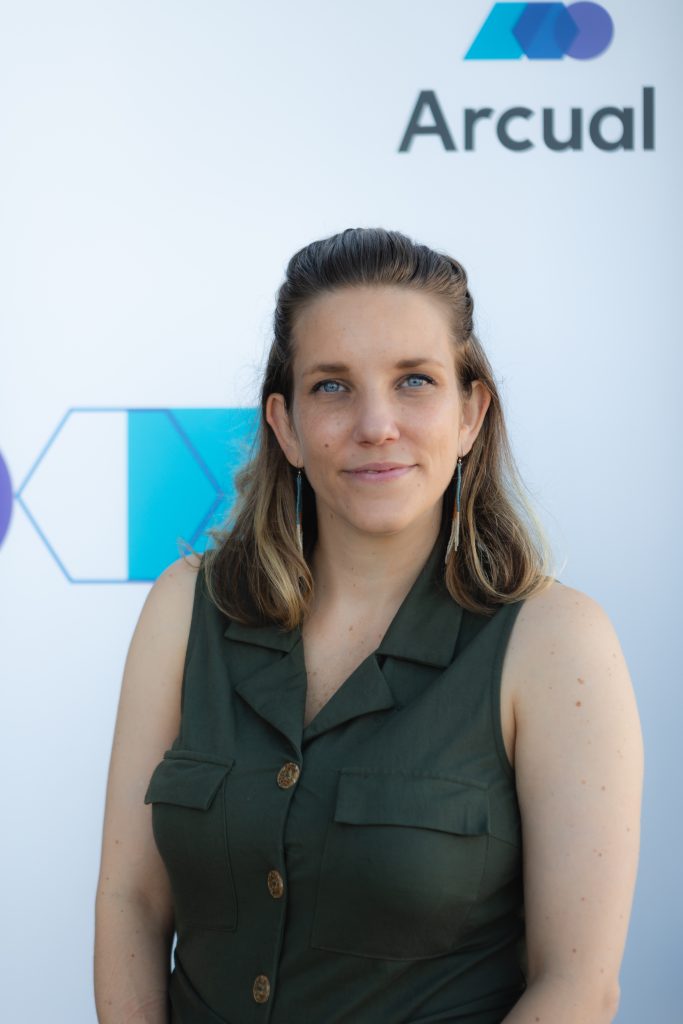[ad_1]
What’s fallacious with right now’s artwork market?
That’s a query to which there are solutions aplenty. Artists are largely unable to learn from the skyrocketing costs of their work after an preliminary sale, whereas flippers could make out like bandits. Galleries that assist artists early on of their careers may be left excessive and dry after they hit it huge. A real chain of possession is troublesome to hint. The listing goes on.
A brand new firm, Arcual, leverages blockchain expertise to handle these points and needs to alter the way in which enterprise as ordinary is completed within the artwork market.
Cofounded by Artwork Basel and the Luma Basis—two Swiss establishments with completely different pursuits (the previous is a business enterprise, the latter a nonprofit)—the corporate defines itself as a “blockchain ecosystem constructed for the artwork neighborhood, by the artwork neighborhood.”
It’s, to place a finer level on it, a customized digital ledger that hosts good contracts designed for artists and sellers.
These contracts provide art-specific options that normal agreements usually don’t: they’ll outline fee phrases, confirm provenance, and make sure that creators are paid royalties every time their artworks are offered. Artists may even use these agreements to stipulate how their work is put in or saved and the way it may be translated into the metaverse. They’ll request work for an exhibition shortly and simply, with out having to do elaborate detective work.
“In the event you promote a Dan Flavin and not using a certificates of authenticity, it’s only a bunch of sunshine bulbs,” defined Bernadine Bröcker Wieder, Arcual’s CEO. “That’s type of the thought. In the event you promote one thing with out the artist’s digital certificates of authenticity that they minted with the gallery, then you definately lose the essence of the art work. You lose the voice of the artist.”
What Arcual is constructing, Bröcker Wieder went on, is “this digital voice of the artist that continues to go together with the art work for its lifetime.”

Bernadine Bröcker Wieder, CEO of Arcual. © Arcual.
The success of Arcual will rely on how a lot buy-in it will get from the artwork world—not solely from artists and galleries, however from collectors, too. A beta model is now being provided to galleries within the Artwork Basel community, however the actual rollout will start in December when the corporate plans to introduce its expertise at Artwork Basel Miami Seashore.
In a future the place transactions happen inside the Arcual universe, an artist may conceivably disown a bit with the clicking of a button if the collector violates circumstances agreed to on the level of sale, like not flipping it for a sure interval. (Disowning a piece—the nuclear choice—is actually unlikely, nevertheless it’s potential.)
An identical worth proposition stands earlier than sellers, who may also construct royalty agreements into contracts and cut up proceeds with their artists. Doing so incentivizes them to assist younger creators, Bröcker Wieder factors out. It additionally helps them profit from the still-booming marketplace for ultra-contemporary artwork: Katya Kazakina notes within the newest version of the Artnet Intelligence Report that, in 2021, artworks created the yr prior generated $139 million at public sale, 10 instances greater than a decade earlier.
For its half, Arcual will take a minimize of lower than 5 p.c on all preliminary transactions, then a bigger minimize—5 to fifteen p.c—anytime an art work is resold.
In contrast to Ethereum, Polygon, and different blockchain infrastructures, whereby data is recorded—by design—on a public database, Arcual prioritizes privateness. What an art work prices, who it was offered to, the place it lives—that data stays encrypted; it’s accessible to solely the events aware of the contract, except specified in any other case.
The corporate’s database can also be purpose-built for actual—that’s, bodily—artwork. “This isn’t an NFT platform, and it’s not a market,” Bröcker Wieder harassed. (Earlier than becoming a member of Arcual, she based Vastari Group, an internet market for personal collectors and exhibition producers.) The corporate is headquartered in Zurich and at present boasts round 20 staff.
The platform, which was incubated by BCG Digital Ventures, an arm of the Boston Consulting Group, shouldn’t be the primary to use good contracts to the artwork business. Predecessors that use blockchain expertise to register the sale of an art work embrace Fairchain, Artory, and Verisart. (Some take a flat charge on gross sales, others take a share.)
Max Kendrick, the founding father of Fairchain, mentioned he hopes Arcual “reveals itself to really be artist-first. We additionally look ahead to studying extra concerning the extent of their dedication to defending consumer knowledge and the way they navigate the inherent vulnerabilities of good contract structure.”
Representatives declined to state how Luma, Artwork Basel, and different traders will share proceeds.
“Arcual’s expertise permits us to make potential what was much-needed earlier than, but not possible to implement,” Marc Spiegler, world director of Artwork Basel, mentioned in a press release. “Inside Artwork Basel, the inspiration for Arcual got here from a longstanding frustration round the truth that in right now’s artwork world, artists usually don’t profit from the expansion of their very own market—and neither does the gallery that supported them.”
Maja Hoffmann, the mega-collector behind Luma, mentioned in a press release that the initiative is “about inserting the artists within the heart, which can also be the mission of the LUMA Basis.”
“The blockchain is smart right here,” added Bröcker Wieder. “It’s one thing that, in the long run, will profit your entire system.”
Observe Artnet News on Fb:
Want to stay ahead of the art world? Subscribe to our newsletter to get the breaking news, eye-opening interviews, and incisive critical takes that drive the conversation forward.
[ad_2]
Source link
